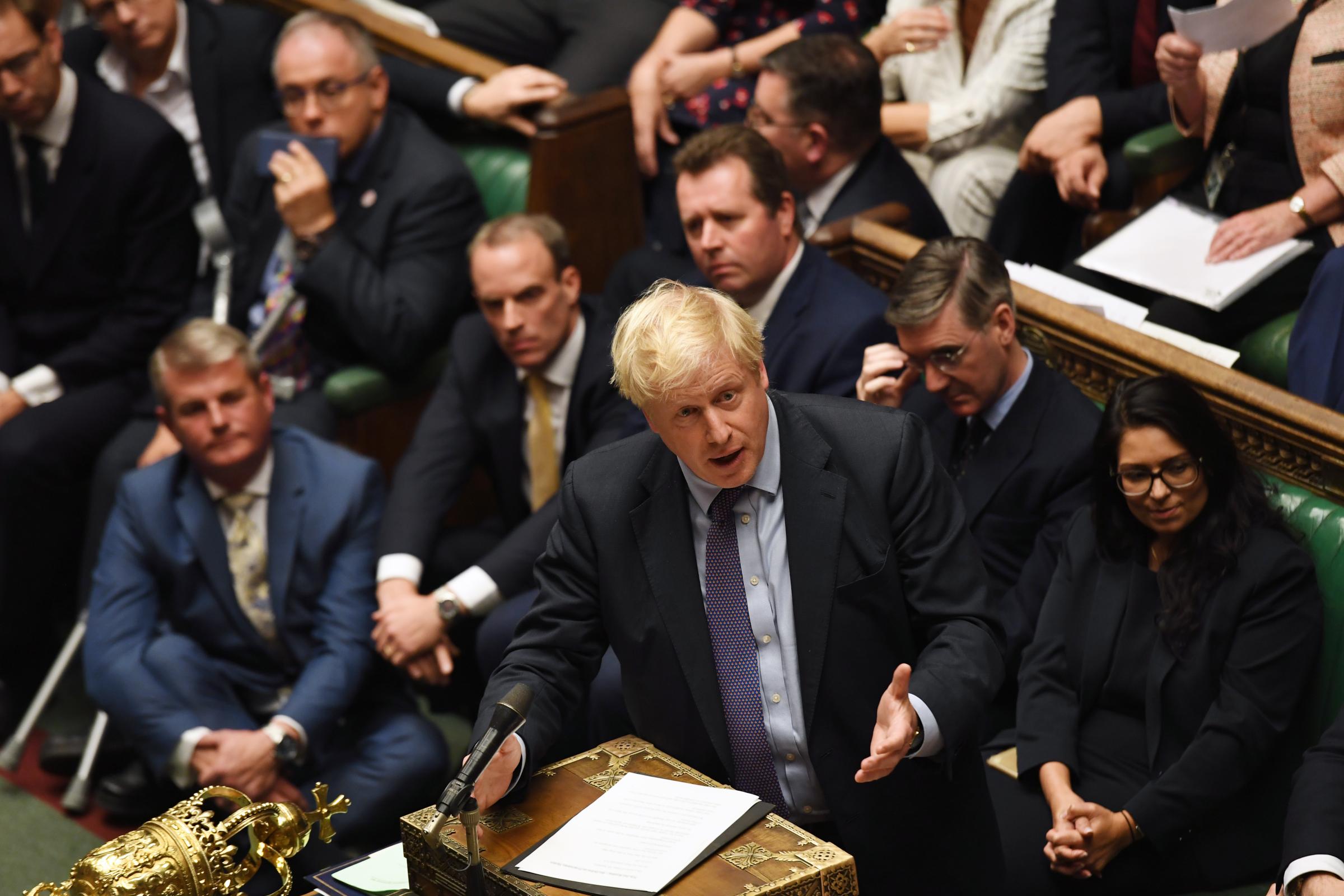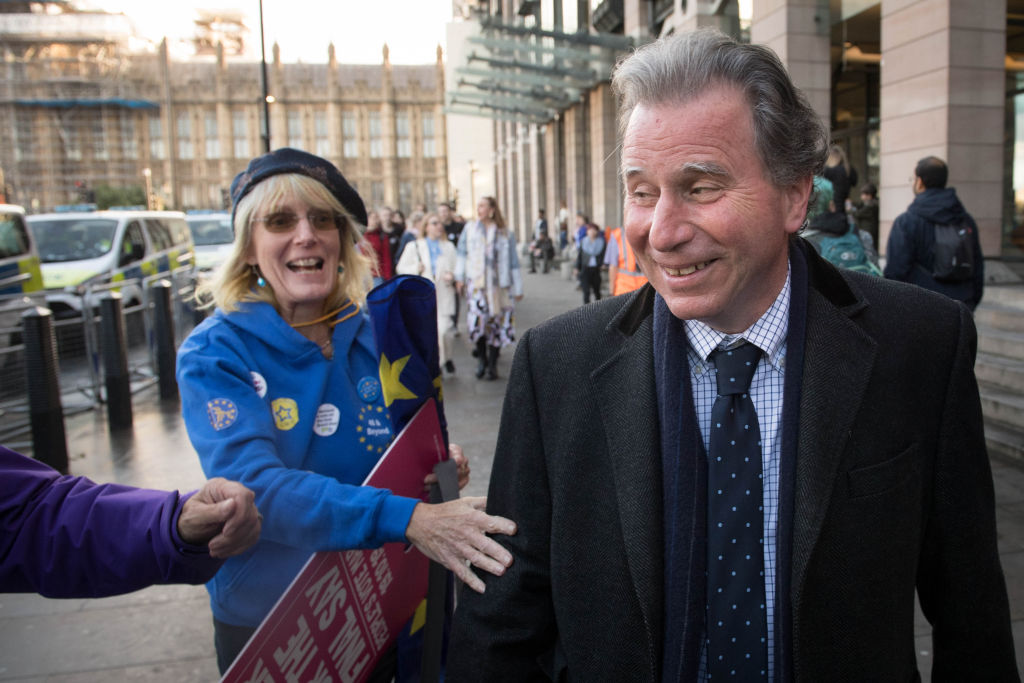Brits will vote in their third election in four years in December, after a majority of lawmakers supported a push by Prime Minister Boris Johnson to hold an early election to break the Brexit deadlock.
The E.U. had earlier accepted a request by Johnson to delay Brexit until January, after British lawmakers rejected the renegotiated exit deal Johnson had struck with the bloc.
The new Brexit deadline is set for Jan. 31, though E.U. leaders agreed to offer Britain a “flextension” — or flexible extension — meaning Brexit could happen sooner if lawmakers agree to ratify a deal.
Here’s what to know:
What happened to Boris Johnson’s Brexit deal?
At what was billed as a crucial E.U. summit on Oct. 17, Johnson and E.U. leaders agreed on a new Brexit deal, replacing the one negotiated by May.
But just days later, Johnson’s deal looked almost as dead as May’s.
First, on Oct. 19, British lawmakers pulled a parliamentary maneuver to avoid a yes/no vote on the proposed legislation.
Then, on Oct. 22, as the bill which would write the deal into U.K. law was on its journey through Parliament, lawmakers voted to reject Johnson’s plan to speed its passage through before the Oct. 31 deadline. Even though Johnson had asked for a Brexit delay, he was still hoping to get the bill passed before Halloween, avoiding the need for an extension. But lawmakers rallied against that plan, arguing it left them insufficient time to scrutinize the 400-plus page deal in detail.

Why did Boris Johnson ask for a new delay to Brexit?
On Oct. 19, a contingent of lawmakers eager to avoid Britain crashing out of the E.U. realized that even if Johnson’s deal had passed, a so-called “no deal” Brexit could still occur if the bill failed to pass through both Houses of Parliament in time to become law before Halloween.
So instead, they voted to withhold their crucial support for Johnson’s deal. In practice, that meant that Johnson was unable to get the clean yes/no vote he had desired. And it forced Johnson to request a delay to Brexit, complying with a law passed in September by rebel lawmakers mandating him to do so if a deal had not been agreed by Oct. 19.
He had repeatedly said he would prefer to “die in a ditch” than to do so, but late that evening, Johnson sent three unsigned letters to the E.U. requesting a delay.
Outside Parliament on Oct. 19, crowds of anti-Brexit protesters cheered and danced, amid what organizers described as a million-strong march, one of the largest demonstrations in British history.
On Oct. 28, E.U. leaders agreed to delay Brexit until Jan. 31. It was the third time the Brexit deadline has been pushed back.

What will happen next?
British lawmakers in the House of Commons, the lower of the two state legislatures, voted on Tuesday evening to hold an election on Dec. 12.
The House of Lords, the upper house, must now rubber-stamp the decision. But with all the major parties now supporting an election, the Lords are not expected to be an obstacle.
Tuesday’s vote was Johnson’s fourth attempt to arrange an election before the end of the year. His first three attempts, the most recent of which was on Monday, were voted down by lawmakers. They did not meet the two-thirds majority required in Parliament, thanks to a law passed in 2011 aimed at making it harder for Prime Ministers to call a snap election at a time which suits them.
In Monday’s vote, most of the Labour Party abstained. But Labour was effectively forced into supporting the vote on Tuesday, which only required a simple majority of 50% in parliament to pass, after smaller parties indicated they would support the vote, getting it over the line.
Lawmakers will remain in their seats for another week. On Nov. 6, Parliament will be dissolved and the election campaign period will begin. There will not be another vote on the deal in parliament until after the election, assuming Johnson is still Prime Minister.
Is a no deal Brexit still possible?
Not on Oct. 31. But no deal could still be on the cards next year. If a deal has still not been agreed by the new deadline at the end of January, Britain could crash out of the E.U.
That’s because the current anti-no deal legislation, passed by rebel lawmakers in September, was written with very specific reference to the Oct. 31 deadline.
In addition, the deal could still collapse after Brexit day has passed. One of the key elements of the deal is that the U.K. would enter a “transition period” between membership and non-membership of the E.U., which would last until 2020. During that transition period, a full free trade deal between the U.K. and E.U. would need to be negotiated.
On Oct. 19, some lawmakers poring over the fresh ink of Johnson’s new deal grew concerned that, instead of avoiding no deal, it left open the possibility of a no deal Brexit if those trade negotiations collapsed.
More Must-Reads from TIME
- Caitlin Clark Is TIME's 2024 Athlete of the Year
- Where Trump 2.0 Will Differ From 1.0
- Is Intermittent Fasting Good or Bad for You?
- The 100 Must-Read Books of 2024
- Column: If Optimism Feels Ridiculous Now, Try Hope
- The Future of Climate Action Is Trade Policy
- FX’s Say Nothing Is the Must-Watch Political Thriller of 2024
- Merle Bombardieri Is Helping People Make the Baby Decision
Write to Billy Perrigo at billy.perrigo@time.com